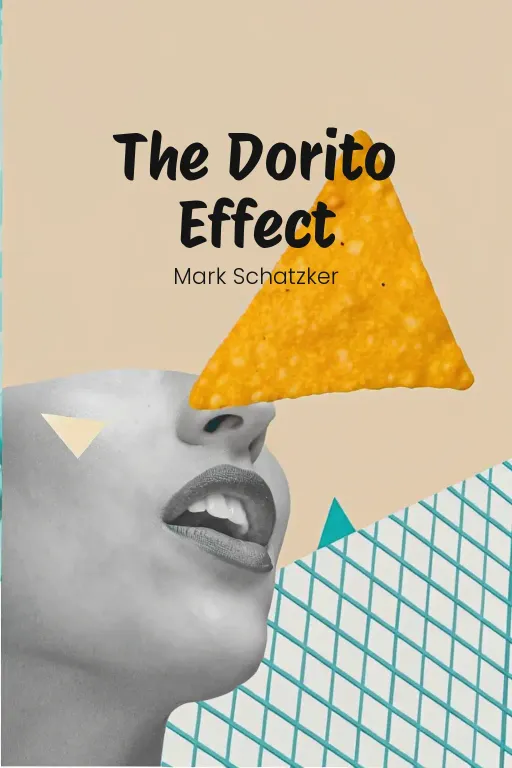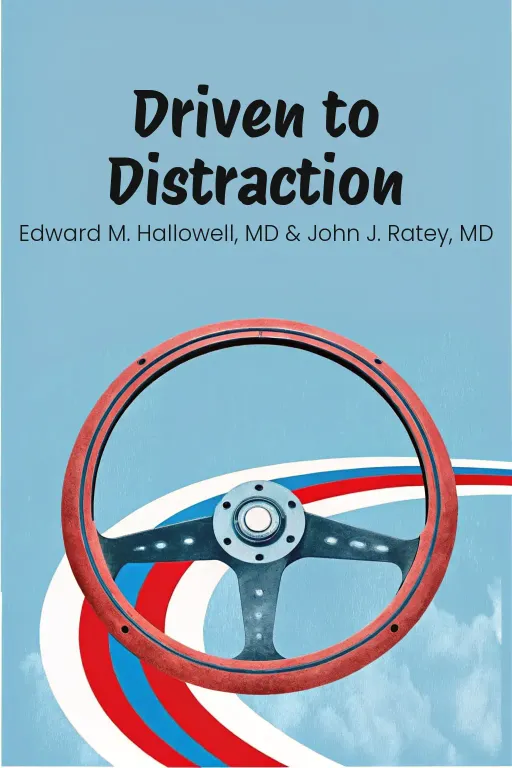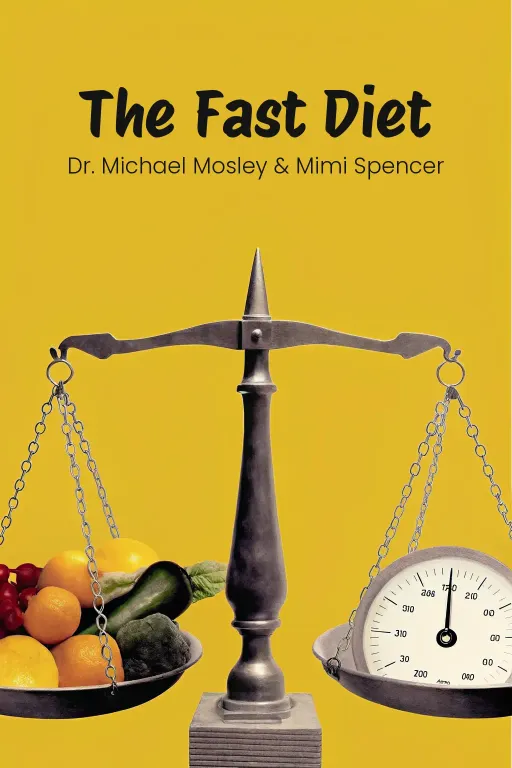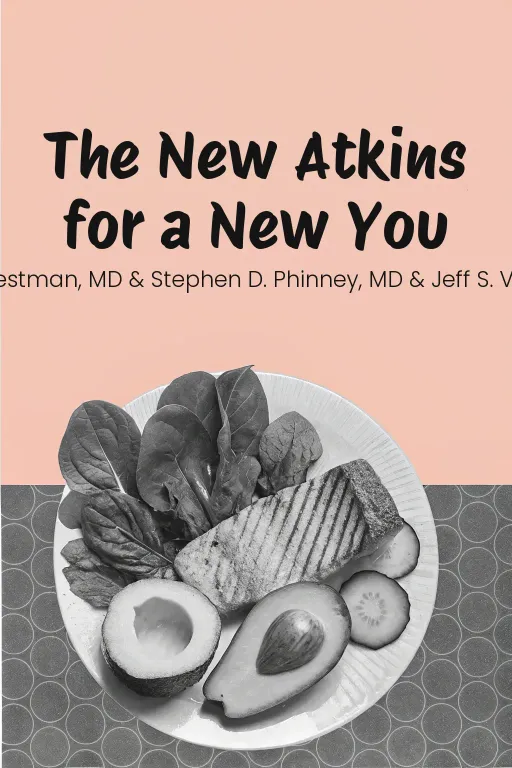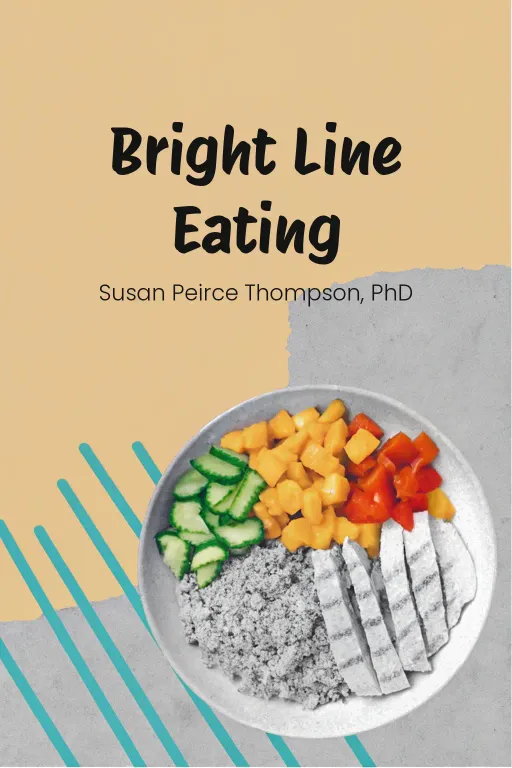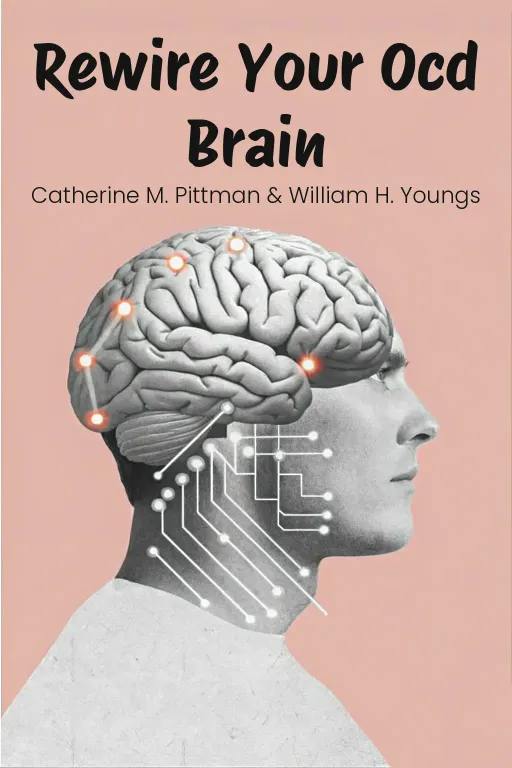
Insulin: The Real Key to Weight Loss?
Podcast by Beta You with Alex and Michelle
Unlocking the Secrets of Weight Loss
Insulin: The Real Key to Weight Loss?
Part 1
Alex: Hey everyone, and welcome to the podcast! Today, we're shaking things up a bit. We're tackling The Obesity Code by Dr. Jason Fung, and trust me, it challenges everything we think we know about weight loss. Michelle: Ugh, another diet book? Here we go. So, Alex, spill the beans—what's the magic bullet this time? Is it some exotic berry I've never heard of? Alex: Nope, no magic bullets, Michelle. Fung actually argues that the traditional advice we've been getting – you know, calorie counting and endless cardio – it's missing the point. He pinpoints hormones, especially insulin, as the real drivers behind weight gain. It's about how our bodies actually use and store energy, so it's not just about calories in versus calories out. Michelle: Hormones, huh? You mean it's not just my fault for loving donuts? Alright, you have my attention. Maybe there's hope for me yet. Alex: Exactly! And today, we're going to unpack three big ideas from the book. First, we're diving deep into how insulin really controls fat storage, and how it can work against us. Then, we'll look at how our modern diet – all that sugar and processed food – messes up our metabolism. And finally, we'll explore the surprising benefits of fasting. Yes, Michelle, I said fasting! Michelle: Fasting? Seriously? I get hangry if I miss a meal. But alright, I'm curious. Let's get into this. I have a feeling I'm going to have a lot of questions.
The Hormonal Model of Obesity
Part 2
Alex: Okay, Michelle, let’s get into the heart of Dr. Fung’s argument: the hormonal model of obesity. This is really the foundation of the whole book, and it explains why calorie counting often falls short. Michelle: Right, so this is the science behind the "it's not just about willpower" idea? I hear that a lot, but I'm curious, what's actually going on in our bodies? Alex: Exactly. Dr. Fung begins by challenging the traditional calorie-focused approach. You know, the "eat less, move more" mantra. This idea treats calories as basic energy units and weight loss as a simple math problem. But, our bodies don't work like simple equations. Michelle: So, my body's not a calculator? Alex: More like, it has its own agenda! When you cut calories, your body fights back. It slows down your metabolism and increases hunger hormones. Think of it as your energy balance having a mind of its own. So, the weight lost is often regained because your metabolism adapts to conserve energy. Michelle: Ah, so it’s not just a lack of willpower, but biology pulling the strings in the background. Alex: Exactly. That's where hormones come in, especially insulin. Fung describes insulin as the main driver of fat storage and weight gain. When you eat refined carbs, like, white bread or sugary snacks, your insulin levels spike. Insulin helps cells absorb glucose, but there's a downside. Michelle: Okay, insulin does a little more than just let glucose in the door Alex: Right. High insulin tells your body to store unused glucose as fat. It's like a warehouse manager handling inventory. Too much glucose and insulin packs it away into fat cells. Michelle: What happens if that "manager" is always overworked? Alex: That's where the problems start. Chronic high insulin, often from carb-heavy diets and constant snacking, can lead to insulin resistance. Cells stop responding to insulin, so your pancreas makes even more. It's a vicious cycle. Michelle: Okay, fat keeps piling up, and the "warehouse manager" is running around like crazy. How does this explain why some people gain weight more easily than others? Alex: Hormonal complexity! Genetics play a role, deciding how sensitive you are to insulin. But our diets, packed with processed foods and sugar, are the trigger. Insulinomas are a powerful example Fung gives to illustrate the hormonal connection. Michelle: Insulinomas? Unpack that one for me. Alex: Insulinomas are rare tumors causing excessive insulin production. Patients gain weight even without eating more calories. The constant high insulin drives fat storage. It shows elevated insulin directly causes weight gain, not just calories. Michelle: Proof that it’s not just “calories in, calories out.” It’s literally their hormones working against them to store fat. Alex: Exactly, and Fung argues obesity works the same way for many of us, at a less extreme level. So diets that don’t address insulin won’t fix the real problem. Michelle: So starvation diets fail because they target calories but ignore insulin? Alex: Exactly. When you cut calories too much, your body lowers its basal metabolic rate—how much energy you burn at rest—to conserve energy. Hunger hormones like ghrelin spike, pushing your body to hold onto fat. Michelle: Fewer calories burned and more cravings? So people trying to live off celery sticks were doomed from the start. Alex: It gets worse. Constant snacking and refined carbs keep driving insulin higher, worsening insulin resistance. It feels like those last few pounds won't budge. Michelle: People think, "If obesity is all about hormones, wouldn’t you gain weight eating tons of calories, no matter what food it is?" Alex: Fung addresses this with overfeeding experiments. In one study, participants ate thousands of extra calories daily. Some did not gain as much fat as expected because their basal metabolic rate increased to compensate. But when those extra calories came from refined carbs and sugar, boom, significant fat gain from the insulin spike. Michelle: So it’s not just the amount of food, but the type? Carbs are gasoline for the fat-storing fire? Alex: Precisely. Calories from carbs and sugar hit the body differently than those from fat or protein. They trigger a stronger insulin response, leading to more fat storage. Michelle: What about people with type 2 diabetes on insulin therapy? Alex: Patients with type 2 diabetes often take insulin to control their blood sugar, which can lead to significant weight gain. It reinforces how insulin is more than just a blood sugar regulator—it’s also a fat-storage hormone. Michelle: So, it's that we need to think of obesity not as personal failure but as a hormonal tug-of-war? Insulin is really at the root of it all. Alex: That’s Fung’s argument. Conventional weight-loss advice focuses on willpower and calories, but the science tells a different story. If we want lasting changes, we have to address insulin first.
Dietary Myths and Misconceptions
Part 3
Alex: Okay, so understanding how hormones cause obesity naturally makes us look at diet, right? If insulin is key in fat storage, then we need to know what foods are making insulin go crazy, yeah? Michelle: Exactly! So, which dietary landmines are we tiptoeing through today? Alex: Exactly! And that's where The Obesity Code really shines: busting dietary myths. Dr. Fung explains why things we thought were healthy, or at least harmless, are messing with our hormones. We're talking about the calorie myth, sugar, artificial sweeteners, even fat! Michelle: Woah, hold on. So, we're tackling not just one, but several food sacred cows here? Alright, Alex, which one's getting the chop first? Alex: The calorie myth! You've heard it a million times: "A calorie is a calorie." Well, Fung says that’s just not true because it assumes your body processes all calories the same way. The reality? Different foods cause very different hormonal reactions. Michelle: Okay, but we've all seen the fitness people, right? Burning 500 calories here, cutting 500 there. Are you telling me this whole idea of calorie counting is... well, is it just useless? Alex: Not useless, exactly, but definitely flawed. Think of it this way: if you cut your calorie intake by, say, 30%, your body doesn't just happily burn fat. Your basal metabolic rate, or BMR, drops by almost the same amount. It's a survival thing. Michelle: Ah, okay, so it's like your body throws a fit, right? Like, "Fewer calories? Time to hoard energy and hold onto this fat for dear life!" Alex: Exactly. Dr. Fung calls it the body's thermostat. Try to force weight loss by just cutting calories, and your thermostat just lowers your internal temperature – you burn fewer calories and get hungrier. That’s why calorie counting often fails. Michelle: So, basically, our bodies think we're in a famine and switch to survival mode? That kind of explains why people plateau and then give in to pizza night! Alex: Exactly, and it's not just how many calories, but the type. Fung stresses that insulin, not the calorie count, decides if your body stores fat or burns it. Eating 100 calories of sugary snack is not the same as 100 calories of fat. Michelle: Let me guess. One triggers an insulin explosion, and the other is barely a flicker, huh? Alex: Exactly! Refined carbs—sugary drinks, pastries, white bread—cause massive insulin spikes. And insulin isn’t just about blood sugar; it tells your body to stop burning fat and start storing it. Michelle: So, insulin's the ultimate fat-storage promoter, with sugar and processed carbs as the star players. What about something like fructose? Isn't that just fruit sugar? Alex: That’s where it gets interesting. Fung dedicates a whole section to sugar, specifically fructose. So, glucose is used by almost every cell in the body, but fructose is processed almost entirely in the liver. Too much fructose overwhelms the liver, turning it into fat and causing things like non-alcoholic fatty liver disease. Michelle: Fructose sounds like the black sheep of the sugar family, quietly causing chaos while everyone blames glucose. Alex: Precisely! And the Western diet is overloaded with fructose, thanks to high-fructose corn syrup in processed foods and sodas. Fung says by 2010, the average American was eating over 1,600 calories a day from added sugars alone. Michelle: Wait, 1,600 calories? That's basically a whole day's worth! And I'm guessing it wasn't all from apples and oranges, right? Alex: Nope. Mostly from sugary drinks, candy, and processed snacks. Unlike whole fruits, these don't have fiber to slow absorption and lessen the insulin spike. Plus, fructose doesn't trigger leptin – the hormone that tells you you're full. So you can keep eating and drinking without feeling satisfied. Michelle: Let me see if I've got this. Soda hits your liver like a sugar bomb, tells insulin to hoard fat, and leaves you wanting more? Sounds like a triple betrayal. Alex: Exactly. That’s why sugar isn’t just "empty calories"; it messes with your metabolism. But here’s the kicker – people try to “fix” this by switching to diet sodas, thinking they're avoiding the problem. Fung says, not so fast. Michelle: Ah, I've been waiting for this part! Are you about to tell me my zero-calorie cola is somehow making me fatter? Alex: Sadly, it might be. Some studies show that artificial sweeteners, like sucralose, can cause an insulin response – up to a 20% spike in some cases, according to Dr. Fung. Even without real calories, your body anticipates sugar and reacts. Michelle: So, the body is tricking itself? Like, "Oh, sweet taste detected! Better send in insulin, even if there's no sugar actually there!" Alex: That's one way to look at it. Plus, artificial sweeteners mess with your brain's reward system. You get "sweet" without energy, so your brain feels unsatisfied. This can trigger cravings for more high-calorie foods. Michelle: Oh, so diet soda drinkers might be fighting MORE cravings, not less! Talk about irony. Now, let me guess... Fung's not going easy on "low-fat" diets either, is he? Alex: Not at all. He has a whole section dedicated to debunking the fat myth. For ages, health guidelines marked dietary fat, especially saturated fat, as the cause of heart disease and weight gain. But Dr. Fung explains this was based on shaky studies, like Ancel Keys’ Seven Countries Study, which kind of rigged the data to blame fat while ignoring sugar. Michelle: So, we traded butter for margarine and sugar-loaded low-fat yogurt, thinking we were saving ourselves, but it was actually feeding the insulin monster? How predictable! Alex: Exactly. And now, new research is proving fats right. Especially healthy fats – monounsaturated fats in olive oil and avocado. They don't cause the insulin spikes that carbs do, and can actually give you better metabolic health! Michelle: So, to sum it up, we've been fooled by diet myths for years—counting calories, fearing fats, drinking diet sodas—all while the real villain, insulin, was calling the shots, right? Alex: That's pretty much what Fung says. Fixing our metabolic health starts with noticing these myths. We should make diet choices to stabilize insulin, like whole foods, and less refined carbs and sugar. It’s not about being perfect, but about knowing what is driving weight gain. Michelle: Okay, you got me. From now on, I'm reading the fine print when I see words like "low-calorie" or "diet" on a label. I'm starting to understand why Fung's ideas are shaking up the diet world.
Fasting as a Solution
Part 4
Alex: So, after pinpointing all these dietary traps, we get into how to actually manage our weight and boost our metabolic health. And this is where Fung's fasting recommendation really shines. It's not just another fad diet; it’s a real-world application of the hormonal model, with practical steps that work with our bodies. Michelle: Hold on – fasting? You mean, like, choosing not to eat? So, after years of people feeling guilty for skipping breakfast, we're now saying, "Hey, actually not eating is good for you"? I can already see the chaos this is causing among dietitians. Alex: Exactly! That’s the typical reaction fasting gets. But Fung frames it differently. He stresses that fasting isn’t about starving yourself – it's a way to interrupt those constant insulin spikes, letting our bodies switch gears and burn that stored fat. Think about it, historically, fasting was a pretty normal thing when food wasn't always available. Michelle: Right, because our ancestors weren't exactly reaching for a soda every few hours. I get the history part, but how does fasting fit into today’s world, where food's everywhere, all the time? Alex: Fung argues that modern diets have messed up our natural eating and fasting rhythms. Instead of cycles of feast and fast, we're always in a "fed state," snacking constantly. And that keeps insulin levels high which basically blocks fat burning completely. Michelle: So, by fasting, we're giving insulin a break. Okay, but let's get into the nitty-gritty: how does fasting actually work on a biological level? Don't just tell me "you don't eat" – I want the science behind it. Alex: Fair enough! Fasting mainly does two things. First, no eating means low insulin, which tells the body to stop storing fat and start using it for energy. Second, fasting starts metabolic processes like gluconeogenesis and ketosis. Gluconeogenesis is when the body turns fats and proteins into glucose for energy. In ketosis, the liver converts fatty acids into molecules called ketones, which fuel the brain and other organs. Michelle: Okay, so if the body doesn't get food from the outside, it uses its own reserves. But, Alex, what about hunger? Doesn't fasting just make you incredibly hangry? Alex: Well, hunger is more about habit than real need. Fung explains that we’re conditioned to eat at certain times, so hunger is often just triggered by routine, not actual energy needs. Studies even show that hunger decreases as your body gets used to fasting. Plus, drinking water, black coffee, or tea can help reduce that feeling. Michelle: Alright, so skipping breakfast won't kill us. But I bet Fung doesn't expect people to do a 48-hour fast right away, right? What does fasting look like in real life? Alex: Exactly – Fung's big on flexibility. He introduces intermittent fasting, or IF, as a practical framework. A popular method is the 16/8 schedule: you eat during an 8-hour window, like noon to 8 PM, and fast the other 16 hours. It’s simple, effective, and you don’t have to obsess over calories. Michelle: Oh, so it’s like, “Skip breakfast, eat lunch and dinner, and that’s it.” I can see why that appeals to people who hate super strict diets. What does the research say about how well it works? Alex: Lots of good results. The studies Fung mentions show that fasting reduces insulin, improves insulin sensitivity, and increases fat burning. There’s also evidence that it boosts growth hormone, which helps keep your muscles while losing fat. And then there's norepinephrine, a stress hormone released during fasting, which keeps you alert and helps burn calories even without food. Michelle: Growth hormone, norepinephrine – I'm starting to see why people talk about "fasting clarity." Okay, but here's my cynical question: is fasting just another unsustainable diet trend? Are people really going to stick with this long-term? Alex: That’s the beauty of it – fasting isn’t about changing everything you eat or following crazy rules, it’s more of a lifestyle shift. Fung shares stories of people who, after struggling with calorie counting and yo-yo diets for years, found success with fasting because it frees them from constantly thinking about food. For example, the 16/8 method can help someone stabilize blood sugar, lose weight slowly, get more energy without feeling deprived. Michelle: Alright, I get it. But I need to know about the downsides. What are the common objections to fasting, and how does Fung deal with them? Alex: Good point. A big one is metabolic slowdown. There’s this idea that fasting forces the body into "starvation mode." Fung debunks that with research showing that fasting actually increases metabolic rate in the short term, thanks to those norepinephrine surges. Muscle loss is another worry, but studies show fasting preserves muscle while prioritizing fat for fuel, especially when you eat enough protein during your eating windows. Michelle: So, fasting’s more fine-tuned than people think – not just a "desperate famine mode" thing. But I have to ask: what about reintroducing food? Aren’t there horror stories about people overloading their systems after fasting? Alex: That’s a valid concern. Fung recommends “breaking the fast” gradually with nutrient-dense, easy-to-digest options like bone broth or vegetables before jumping into heavier meals. It’s about giving your digestive system time to adjust. Michelle: Okay, so take it slow after fasting. But here's my last question: if fasting's so effective, why isn't it standard advice from doctors? Why is everyone still pushing three meals a day plus snacks? Alex: Well, that goes back to what we talked about earlier: medical norms. The calorie-counting idea is so ingrained, it’s hard to change. Plus, as Fung points out, food companies profit from constant snacking, and fasting doesn’t sell products. But with more research supporting it, fasting’s becoming more accepted in mainstream health discussions. Michelle: So, fasting isn’t just reversing obesity; it’s challenging the whole snack-fueled, food-marketed world we live in. That’s a bold move, but honestly, it makes a lot of sense.
Conclusion
Part 5
Alex: Okay, Michelle, so to summarize everything, “The Obesity Code” really challenges the conventional wisdom on weight loss. It zeroes in on hormones, especially insulin, as the key factor. Dr. Fung makes a pretty strong case that obesity isn’t about willpower or just calories in versus calories out. It’s more about a metabolic issue caused by constant insulin spikes from things like refined carbs and processed foods. Michelle: Right, he basically takes apart the myths we've been force-fed for years: that all calories are created equal, that fats are the bad guy, and that snacking is totally fine. Fung emphasizes how these habits keep our insulin levels high all the time, which traps us in a cycle of storing fat and feeling hungry. Alex: And then there's fasting -- a surprisingly practical and scientifically supported solution, that’s also kind of baked into our DNA! By giving our bodies a break from constant digestion, fasting helps lower insulin, burns fat stores, and kind of reboots our metabolism. Michelle: So, the big takeaway here is weight gain isn’t just about a lack of self-control, it’s a hormonal imbalance we need to deal with head-on. By seeing through all the dietary myths, focusing on real, whole foods, and playing around with fasting, people might actually see real, long-lasting results. Alex: Totally. If there’s one thing this book gets you to understand, it’s that knowing the science behind obesity empowers us to make smarter choices. It’s about ditching outdated advice and actually treating the source of the problem, not just the the symptoms, you know? Michelle: So, whether its switching out your morning muffin for some protein, being skeptical of anything labeled "low-fat," or trying intermittent fasting, maybe it “really” is time to question what we thought we knew. Progress comes from challenging the old story and trusting the science. Alex: Exactly, Michelle. And that wraps up today's episode! Thanks for tuning in as we unraveled "The Obesity Code".
